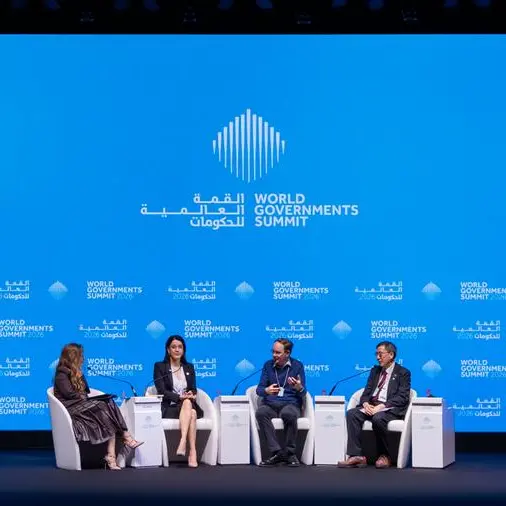PHOTO
- Organised by Sharjah’s Department of Statistics and Community Development on October 9-10
- Bringing together distinguished speakers from various countries, including Sudan, Yemen, Qatar, the United States, Saudi Arabia, and Oman
- UN-ESCWA discusses the integration of traditional and non-traditional data for labour market forecasting and data’s role in conflicts and humanitarian crises
- GCC Statistical Centre discusses healthy life expectancy and improving elderly care services to foster community development.
- ICESCO to deliberate the use of data in the development of infrastructure and advancing services
Sharjah: Emphasising the importance of collaborative international efforts in accelerating data-driven comprehensive development, the Department of Statistics and Community Development (DSCD) has announced its strategic partners for the inaugural ‘Regional Data & Community Development Forum’, slated for October 9-10 at Al Jawaher Reception and Convention Centre in Sharjah.
The region's first-of-its-kind event has partnered with federal, regional, and international institutions, including the United Nations Economic and Social Commission for Western Asia (ESCWA), GCC Statistical Centre, and a collaboration with the Islamic World Educational, Scientific and Cultural Organisation (ICESCO) on a specialised session.
The partners will organise more than 10 sessions discussing various topics, including the role of data in developing infrastructure, enhancing sustainability, forecasting the future of the labour market, improving quality of life and supporting communities, as well as the well-being of the elderly. The sessions, led by distinguished speakers from various countries, including Sudan, Yemen, Qatar, the United States, Saudi Arabia, and Oman, aim to promote cooperation and exchange expertise to achieve sustainable development in the region.
The ‘Regional Data & Community Development Forum’ will bring together global experts and decision-makers from various sectors in social and economic development, data specialists, and statistical institutions to discuss, exchange, and promote the use of data to address societal issues and drive social impact to improve communities’ quality of life.
The role of data in crises
ESCWA will host a session titled ‘Strategies for Data Provision in Conflict and Humanitarian Crises in the Arab World’ at ‘Innovative Data’ Stage on day 1. This session will highlight best practices to maintain a continuous and accurate data flow during crises, such as armed conflicts and natural disasters. It will also explore how data can enhance relief efforts and crisis response and the innovative technologies that facilitate aid's swift and effective delivery.
The panellists for this session include Dr. Ali Mohamed Abbas, Director General of the Central Bureau of Statistics in Sudan; Dr. Ismail Lubad, Statistics and Demography Expert at ESCWA; Abeer Amoud, Director General of Social Demographic Statistics at the Central Bureau of Statistics, Aden, Yemen; and moderated by Dr. Ahmed Hussain, Senior Statistics Advisor at the Ministry of Development Planning and Statistics in Qatar.
Comprehensive overview using traditional and non-traditional data
ESCWA will organise a session titled ‘Integration of Traditional and Non-Traditional Data for Labour Market Forecasting in the Arab Region’ during the second day of the forum on ‘Innovative Data’ Stage. The session will explore how to best integrate traditional data sources, such as government statistics and official records, with non-traditional sources, like social media and big data, to provide a comprehensive understanding of labour market needs, forecast potential challenges, and drive economic growth across the Arab region.
This session's speakers include Dr. Salem Araji, Leader of the Future of Work Initiative at ESCWA; Dr. Marwan Khawaja, Chief of the Demographic and Social Statistics Section at ESCWA; Dr. Mohamed AlMarwani from Sorbonne University; and moderated by Dr. Ismail Lubad.
Healthy life expectancy
The Statistical Centre for the Cooperation Council for the Arab Countries of the Gulf (GCC-Stat), in collaboration with HelpAge International and the United Nations Population Fund (UNFPA), will hold a series of workshops focused on enhancing the rights and well-being of the elderly through the use of data.
With three workshops held daily, discussions will focus on addressing the needs of older adults, the influence of ageing data on government policies in GCC countries, and adapting data systems to better serve ageing populations. The workshops will also explore a human rights-based approach to formulating ageing policies, the involvement of older adults in policy development and review, and the challenges and opportunities for improving data on this demographic. Leading these sessions will be experts from HelpAge International, including Chris McIvor, Alex Mihnovits, and Maya Abi Chahine.
Furthermore, GCC-Stat will also host two sessions titled ‘Measuring the Healthy Life Expectancy Index’ at the ‘Transformative Data’ Stage on day 2. During the first session, panellists, including Prof. Ali Mokdad, Chief Strategy Officer, Population Health at the Institute for Health Metrics and Evaluation (IHME) USA; Prof. Mohsen Naghavi, Director of Subnational Burden of Disease Estimation at IHME; Maja Pasovic, Research and Engagement Manager at IHME; and Dr. Arash Rashidian, Director of Science, Information and Dissemination at the World Health Organization (WHO), will discuss factors influencing this index, health policies aimed at improving it, and insights into the role of innovative data collection and analysis methods in enhancing public health.
The second session under the same title will feature Dr. Atha Hamed Al-Qanibat, Chief Officer of Public Health Intelligence, Public Health Authority (PHA) in Saudi Arabia; Suliman Bin Naser Al Rawahi, Senior Specialist in Health Information Management, Ministry of Health, Sultanate of Oman; Dr. Alia Zaid Herbi, Director of the Statistics and Research Center at the Ministry of Health and Prevention, UAE; and moderated by Dr. Ziad El-Khatib, Scientific Coordinator, European Centre for Disease Prevention and Control (ECDC).
Data and the development of infrastructure and services
Meanwhile, ICESCO will organise a session titled ‘Data and the Development of Infrastructure and Improvement of Service Quality,’ on day 1 at the Transformative Data Stage. The panel will feature Dr. Abdullah Al Mulhim, an expert in Partnerships and International Cooperation; Faizah Alaoui, an expert in the Education Sector; Dr. Fahman Fathhurrahman, an expert in the Sciences and Technologies Sector; Dr. Hany Torky, Chief Technical Adviser and Project Manager for the Arab Knowledge Project at UNDP; and Dr. Sally Mabrouk, ICESCOs’ Director of the Office of the Director-General.
Speakers will examine how data can be utilised to identify infrastructure needs and support decision-making in planning and development. It will also highlight regional and international case studies where data has improved efficiency in the transport, energy, water, and telecommunications sectors. Furthermore, the session will explore how data analysis can identify gaps and contribute to sustainable solutions that enhance quality of life and meet the demands of expanding communities.




















